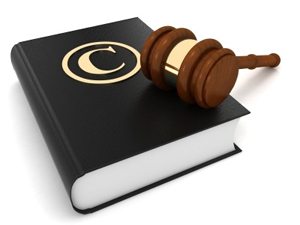 Editor’s Note: The following post and informative white paper was written by Judith Delaney of CMMR Group-TurnsonPoint. Judith is a valued member of Agnes + Day’s Crisis Intelligence Team.
Editor’s Note: The following post and informative white paper was written by Judith Delaney of CMMR Group-TurnsonPoint. Judith is a valued member of Agnes + Day’s Crisis Intelligence Team.
The rise of Social Media and the broad reach of the Internet have created a host of new challenges for copyright owners. Digital technologies, including file sharing and mobile devices, allow users to link to and display website content out of context while search engines, email and Social Media sites make it possible to disseminate copyrighted materials in an instant. Whether you are an entrepreneur or the owner of a small, medium or large business, you more than likely have or will set up a website, a business Facebook page, and in some cases you may even link your website or business Facebook page to sites such as Pinterest to advertise and market online.
No matter the vehicle you use, the commonality is that every law, statute and regulation in your country, or as applicable globally, that applies to your business and your industry as you advertise and market your brand or hire employees, whether the “old fashioned way” or online, applies.
Currently, the most important legal issue related to Social Media is copyright because users and businesses upload significant amounts of content to Social Media, and this frequently includes copyrighted material.
This leads to the question: Do you have a legal right to repost a third party’s photo, video, speech, book or other content in whole or in part and do third parties have a legal right to repost your content?
The answer is simple:
If you don’t have the right or permission to use someone else’s copyrighted material, you may be opening yourself up to major legal liability.
It is important, therefore, that as a business owner, owner of a website or even as an individual, that you protect your copyrighted material from infringement. It’s also important, when using third party copyrighted material, to protect your business from a copyright infringement lawsuit, whether it’s you or your web designer producing the content.
The purpose of this post is to provide you with an informative (free) white paper that discusses the basic principles of United Sates copyright law, the risks, and how to manage that risk of copyright infringement as a copyright owner and as a user of others’ copyrighted content.
Even if you aren’t located in the United States, this information still applies to you!
Irrespective of the country you or your business is located in, you are also subject to United States copyright law if you upload content that is owned by a third party who is recognized as the owner of such content under United States copyright law, which means that you are also subject to risk of infringement if you do not comply.
It is also important to note once again that in nearly all jurisdictions worldwide, including the United States, it is not necessary for a Work to have an explicit copyright notice for it to be copyrighted. It is also not necessary for copyright in a Work to be registered.
Below you will find a link to download a free white paper that discusses:
- What copyright really is
- What excuses you legally can and cannot hide behind (e.g.: fair use doctrine and others)
- Who owns your and third party copyright on the web
- The legal consequences of copyright infringement
- Recommended steps for mitigating risk of copyright infringement (whether as a copyright owner or as a user of third party copyrighted material on your business website)
Click the below link to download this informative white paper:
Internet Copyright Protection – Informative White Paper
Disclaimer: The information contained in this post is provided only as general information and may or may not reflect the most current legal developments; accordingly, this information is not promised or guaranteed to be correct or complete and is not intended to create, or constitute formation of, an attorney-client relationship. The author expressly disclaims all liability in law or otherwise in respect to actions taken or not taken based on any or all the contents of this chapter or related information.
Judith Delaney is an attorney who specializes in global online privacy laws and issues and social media law. Judith helps organizations integrate new media strategies with business strategies to effectively manage risk associated with online compliance such as the HIPPA Omnibus Rule, global social media private and data protections and contract risk management.
